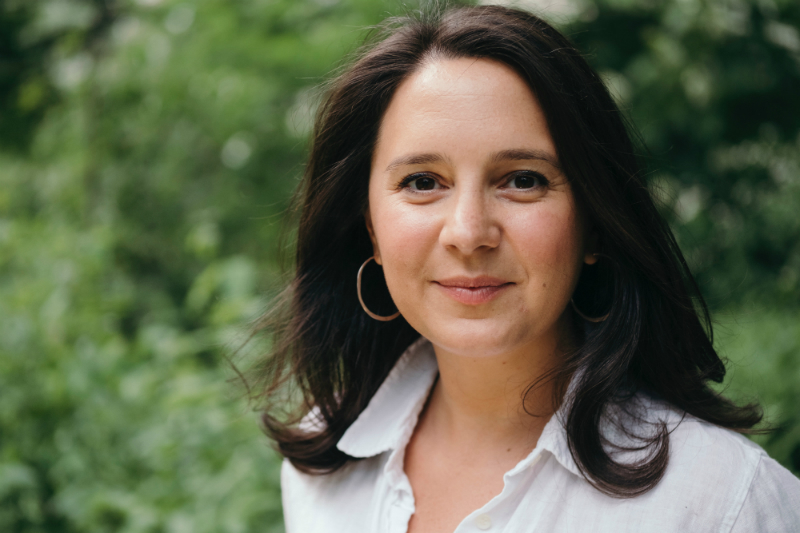New York Times columnist Bari Weiss has emerged as a clarion voice in the struggle against anti-Semitism. Her bestselling book, How to Fight Anti-Semitism (Crown Publishing), is an urgent wake up call that lays out the horrifying history of Jew hatred across the centuries, but also provides a succinct and clear-eyed battle plan at a time it is needed most.
Weiss grew up as a member of the Tree of Life Synagogue in Pittsburgh, scene of the mass shooting in October 2018 that killed 11 worshippers.
The CJN interviewed Weiss in Toronto, where she addressed a crowd of 600 at the closing of UJA Federation’s annual campaign.
Your book focuses on what you call the three-headed dragon: anti-Semitism from the far left, the far right and radical Islam. Given the anti-Semitic attacks in December in and around New York, would you now pay closer attention to anti-Semitism coming from the African-American and Latino communities?
That’s a great question. I volunteered the other day that if I were to go back and rewrite the book now, I would add two things: one, a greater examination of what’s going on in Brooklyn. And two, the unbelievable solidarity that was exemplified by the British Jewish community. I always looked down on British Jewry a little more than American Jewry because I saw them as being quietist, and I really find myself not just revising my view, but eating my words.
It’s obvious in the case of the two most lethal attacks, the one in Monsey, and the one in Jersey City, that those were carried out by people who were deeply influenced by the extreme nationalist views of the Black Hebrew Israelites. But we have no idea what’s motivating mostly young Black teenagers who attack Haredi Jews on the streets. The fact of their race doesn’t tell me what’s motivating that person. In the case of Monsey and Jersey City, we can say it was black-nationalism because the attackers wrote it in their diaries, in their Google searches and in their text messages.
Jonathan Greenblatt, head of the Anti-Defamation League, points out that something like 13 per cent of anti-Semitic incidents in the States last year were carried out by white supremacists. Which means that the vast majority were not, and that diffuse, inchoate hate that’s hard to tie directly to an ideological stream is something that is perplexing and very hard to target, because it’s not necessarily driven by ideology.
You call anti-Semitism from the left more dangerous and insidious than anti-Semitism from other quarters. Is your political slip showing?
[Laughs] I don’t know the last time I wore a slip! Those who accused me of somehow being blind or soft to anti-Semitism from the far right, it baffles me, given the community I come from. And not that those people would know this, but I have very deep ties to people whose lives were shattered by white supremacist violence. It’s a threat that I take very seriously, not least in my own life. Those people really, really hate me. I’m under no illusions that, God forbid, if someone’s going to walk into a synagogue where I’m speaking with a gun, likely that person is going to be from the alt-right.
The people who lodge that accusation are just desperate not to see anti-Semitism in their own precincts. And I’m unwilling to be blind or half blind. And that’s what it seems they want. Because whenever it seems to crop up on the far-left, the excuse making for it or the ignoring of it seems to have no limits.
Do you expect Jewish support for U.S. President Donald Trump to go up in 2020?
I recently asked some Jews in New York, “if it’s Bernie Sanders versus Donald Trump, who are you voting for? How many of you are going to write people in?” In a group of 14, I think 11 hands went up for write-in. I think the problem that I address in the book of political homelessness on the part of American Jewry is going to get more stark, especially if the Democratic candidate is Bernie Sanders. Whether or not that will actually translate into more votes for Donald Trump, I don’t think so. I just don’t think most Jews will go there, and for good reason. But I cannot see them supporting Bernie Sanders if he’s a candidate either.
Do you see differences between anti-Semitism in the U.S. and Canada?
University campus battles seem to be more intense and unhinged here. But you guys are probably less concerned about a crazy Jew-hater walking into Shabbat morning services with a gun because you don’t have, blessedly, the crazy gun policies that we unfortunately have in America.
You end the book on a very positive note, advising Jews to get involved, join a synagogue, express and nurture their Jewish identity. That seems a particular challenge to American Jews, who are experiencing ever-higher levels of assimilation, intermarriage, and lack of identification with Israel.
I think one of the barometers of our success in terms of assimilating into America is also a Jewish failure, meaning something like 70 per cent of non-Orthodox Jews marry outside the tribe, which gives you a sense that the melting pot has worked. But that has also meant that Jewish Americans have melted maybe a bit too much.
What I think is powerful about this moment is the sense that we are increasingly under attack. That has made a lot of people feel as when a schoolyard bully denigrates you or punches you. It makes you want to punch back. It makes you want to defend who you are.
I’m very much in touch with the younger generation of American Jews and I see that process happening in extremely powerful ways. I’m under no illusions that it might be a smaller but more committed core. And I’m OK with that.
This interview has been edited and condensed for style and clarity.
